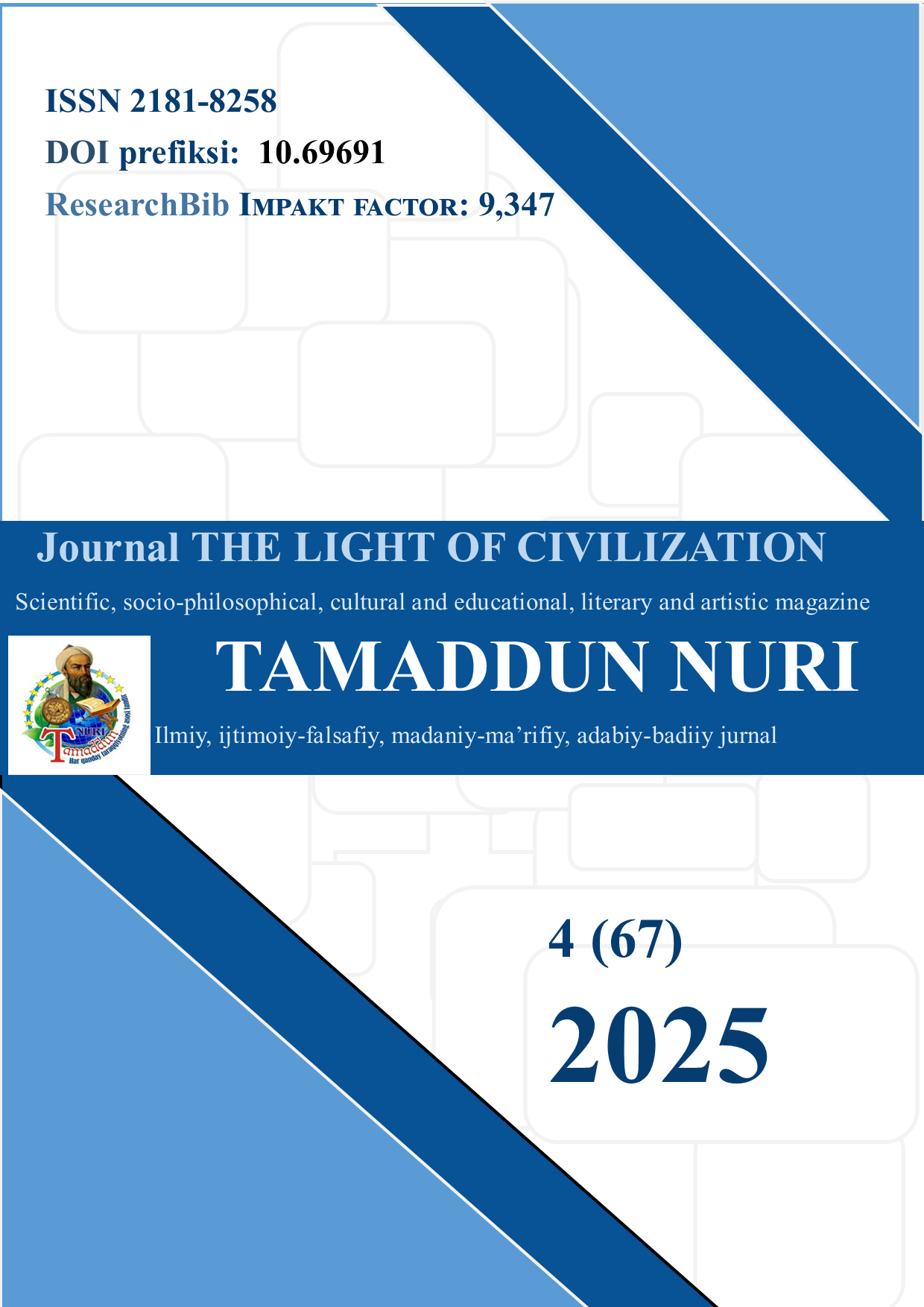ОСОБЕННОСТИ РАЗВИТИЯ НАУЧНОГО МИРОВОЗЗРЕНИЯ УЧАЩИХСЯ В НАЧАЛЬНОЙ ШКОЛЕ
DOI:
https://doi.org/10.69691/dbvzx808Ключевые слова:
Начальный класс, научное мировоззрение, учебная наука, роль учителя, логическое мышление, эксперименты и наблюдения, интерактивные методы, технологии в образовании, деятельность учащихся, научные знания.Аннотация
Формирование научно-логического мышления показывает важность приобщения учащихся к природе и науке. В статье освещена роль преподавателя в развитии научного мировоззрения учащихся, методы повышения интереса к науке в ходе учебного процесса, увеличения научных знаний с помощью экспериментов и наблюдений. Также подчеркивается важность технологий и интерактивных методов, активного участия студентов и сотрудничества в формировании научного.
Библиографические ссылки
Vygotskiy, L.S. (1978). Psikhologiya razvitiya i obucheniya [Developmental psychology and education]. Moskva: Pedagogika.
Shatsky, V.I. (1980). Obucheniye i razvitie myshleniya u detey [Teaching and development of thinking in children]. Moskva: Pedagogika.
Zaitsev, N.A. (2002). Integratsiya nauchnykh i obshchestvennykh znaniy v nachal'noy shkole [Integration of scientific and social knowledge in elementary school].Moskva:Nauka.
S.I.Tursunova The development of oral speech of younger schoolchildren in extracurricular activities. Eurasian Research Bulletin, 2022.
S.I.Tursunova Pedagogical bases of nationalization of school education. Web of Scientist: International Scientific Research Journal, 3 (02), 456–461.
Турсунова, С. И. (2023). Причины выбора модели внеучебной деятельности по развитию устной речи младших школьников.
Загрузки
Опубликован
Выпуск
Раздел
Лицензия
Copyright (c) 2025 Журнал Тамаддун Нури

Это произведение доступно по лицензии Creative Commons «Attribution-NoDerivatives» («Атрибуция — Без производных произведений») 4.0 Всемирная.



